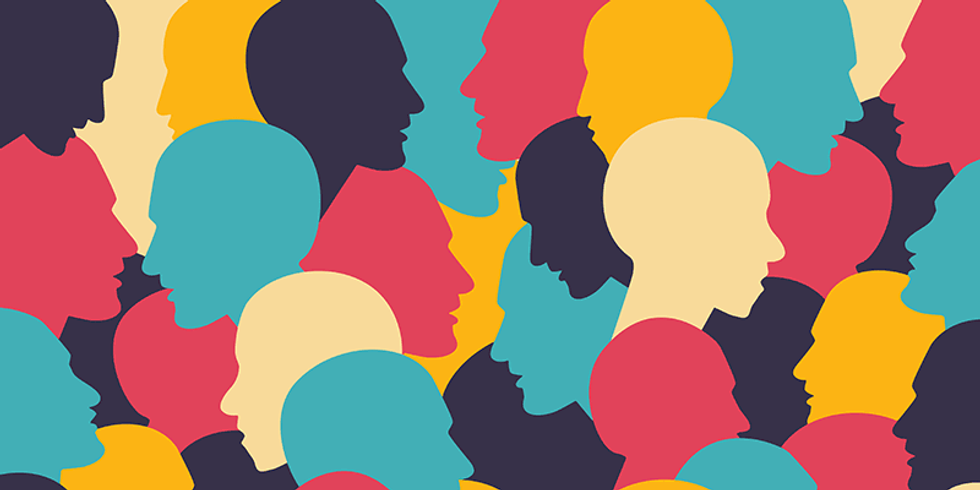What is the Enneagram Test?
The Enneagram is a personality typing that describes how a person views the world and how they process emotions. The Enneagram states that every person has a specific type of world view and that they look at the world through their own lens. This test helps to understand why people behave certain ways and helps show individuals opportunities they may have for personal growth.
What are wings?
The Enneagram is a nine pointed geometric symbol. The nine points represent the nine personality types which are evenly spaced in an outer circle. The types on either side of a person's core type is called their wings. Wings represent different personality styles that compliment your type and add important elements to your personality.
Type One: The Reformer
A type one is serious and practical. They have strong morals and live their lives based on these morals.
Main Goal: To be good and to contribute to society
Main Fear: To be morally incorrect or to break promises
Fictional Characters Who Identify as Type One: Hermione Granger and Professor McGonagall (Harry Potter), Steve Rogers (Captain America), Buffy Summers (Buffy the Vampire Slayer) and Colonel Brandon (Sense and Sensibility)
Type Two: The Helper
A type two is generous and emotionally intelligent. They strive to bring out the best in people and build strong connections
Main Goal: To be caring and loving towards others, wants this love to be reciprocate
Main Fear: To be unwanted or have no one to care for
Fictional Characters Who Identify as Type Two: Molly Weasley (Harry Potter), Peeta Mellark (The Hunger Games), Emma Woodhouse (Emma) and Samwise Gamgee (The Lord of the Rings)
Type Three: The Achiever
A type three is accomplished and extremely driven. They aren't afraid to take on a new challenge and are willing to do whatever it takes to accomplish their dreams.
Main Goal: To be successful and accomplished, to be valued
Main Fear: To become insignificant
Fictional Characters Who Identify as Type Three: Draco Malfoy and Professor Slughorn (Harry Potter), Gaston (Beauty and the Beast), Scarlett O'Hara (Gone with the Wind) and Odysseus (The Odyssey)
Type Four: The Individualist
A type four is expressive and uniquely themself. They are constantly trying to present the real version of themselves to the world and find a deep sense of purpose in all aspects of their lives.
Main Goal: To stand out as a unique individual
Main Fear: To be unoriginal or to lack self-identity
Fictional Characters Who Identify as Type Four: Frodo Baggins (The Lord of the Rings), Liesel Meminger (The Book Thief), Loki (Thor) and Spike (Buffy the Vampire Slayer)
Type Five: The Investigator
A type five is analytical and inquisitive. They seek to uncover the great mysteries of life and soak up as much knowledge as possible.
Main Goal: To increase their capacity for knowledge, to be wise
Main Fear: To be incompetent or unable to take on a new challenge
Fictional Characters Who Identify as Type Five: Sherlock Holmes (Stories of Arthur Conan Doyle), Haymitch Abernathy (The Hunger Games), Albus Dumbledore and Severus Snape (Harry Potter) and Hannibal Lecter (Silence of the Lambs)
Type Six: The Loyalist
A type six is detail oriented and committed. They seek security and pure devotion in all aspects of their life. It is important for there to be a constant flow of trust in their relationships.
Main Goal: To feel safe and accepted
Main Fear: To feel unstable or have a lack of guidance
Fictional Characters Who Identify as Type Six: Narcissa Malfoy (Harry Potter), Logan/Wolverine (X-Men), Bilbo Baggins (The Hobbit) and Eleanor Dashwood (Sense and Sensibility)
Type Seven: The Enthusiast
A type seven is adventurous and optimistic. They are always seeking new experiences and full of energy.
Main Goal: To live an exciting life filled with opportunity
Main Fear: To give in to boredom or to trapped in an uninspiring life
Fictional Characters Who Identify as Type Seven: Sirius Black and Fred Weasley (Harry Potter), Lydia Bennet (Pride and Prejudice), Jamie Fraser (Outlander) and Peter Pan (Peter Pan)
Type Eight: The Challenger
A type eight is strategic and a leader. They are headstrong and achieve whatever they put their minds to. Their desire for power pushed them to become leaders in their areas of expertise.
Main Goal: To control life as a driven and strong individual
Main Fear: To be controlled or to be weak
Fictional Characters Who Identify as Type Eight: President Snow and Johanna Mason (The Hunger Games), Alastor Moody (Harry Potter), Erik/Magneto (X-Men) and Queen of Hearts (Alice in Wonderland)
Type Nine: The Peacemaker
A type nine is accepting and empathetic. They encourage others to express their views and strive for harmony among their relationships.
Main Goal: To feel at peace with their internal and external environment
Main Fear: To feel disconnected from others or experience conflict
Fictional Characters Who Identify as Type Nine: Harry Potter and Remus Lupin (Harry Potter), Dorothy (The Wizard of Oz), Jane Bennet (Pride and Prejudice), Rue (The Hunger Games) and Edward Ferrars (Sense and Sensibility)
"What Is the Enneagram?" Truity, 13 Dec. 2019, www.truity.com/enneagram/what-is-enneagram.
"How The System Works." The Enneagram Institute, www.enneagraminstitute.com/how-the-enneagram-system-works.
Yuan, Lily, et al. "Breaking Down the Enneagram: A Guide for Total Beginners." Truity, 17 Oct. 2019, www.truity.com/blog/breaking-down-enneagram-guide-total-beginners.
Scott, Kate. "The Enneagram Types of 99 Fictional Characters." BOOK RIOT, 21 May 2019, bookriot.com/2017/09/20/the-enneagram-types-of-99-fictional-characters/.






























